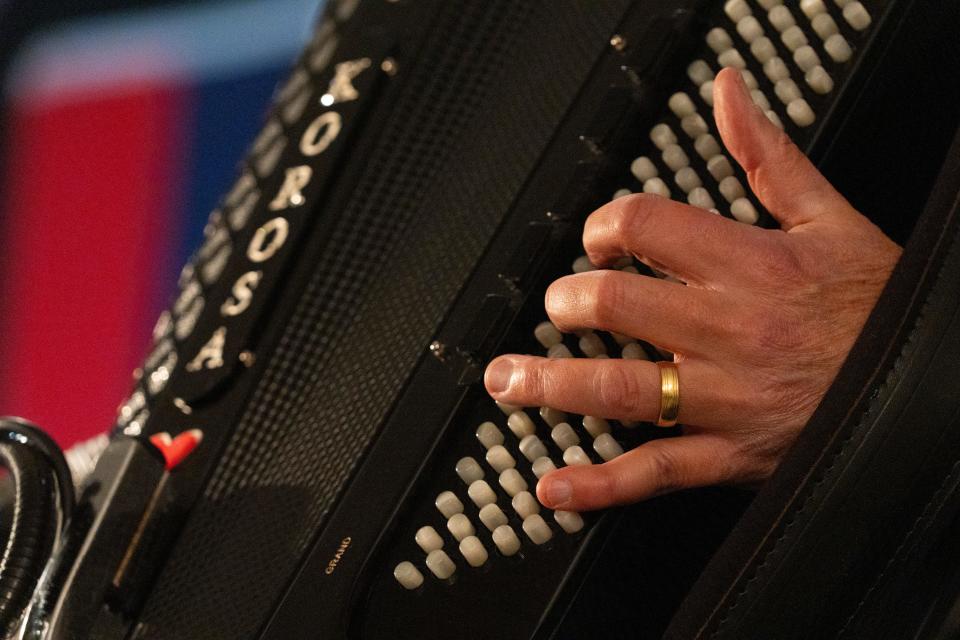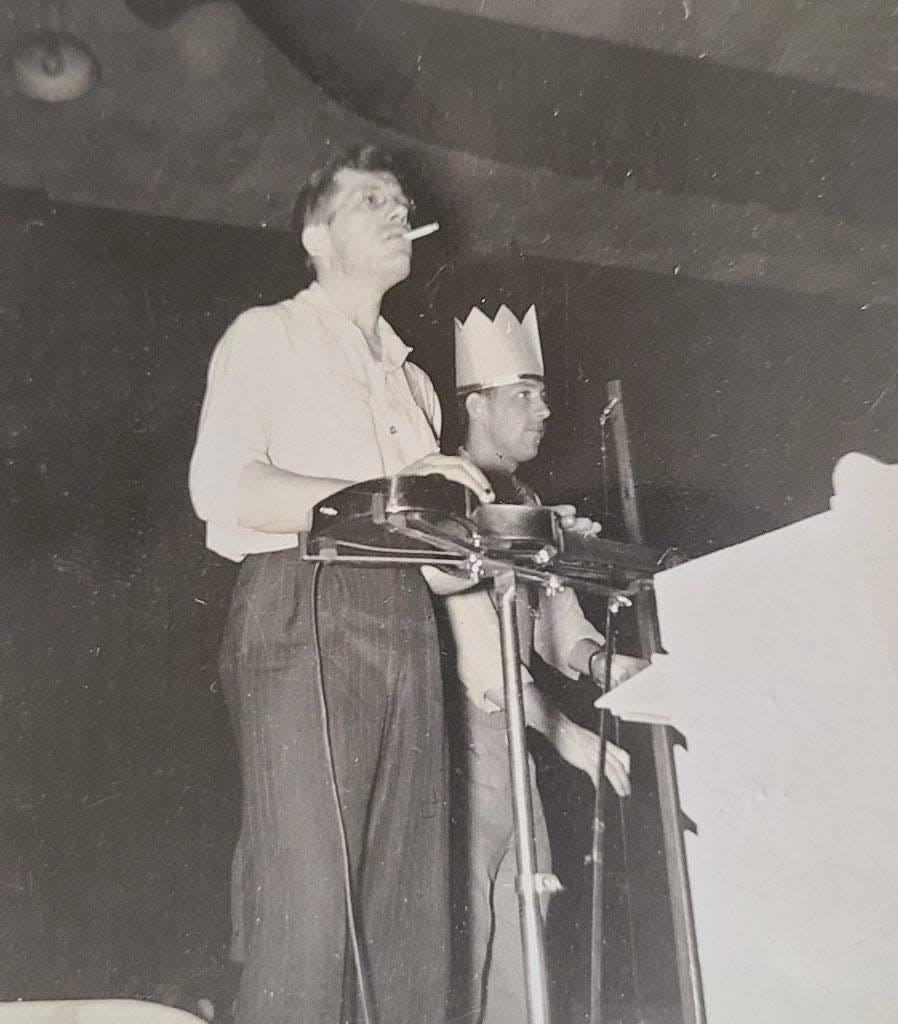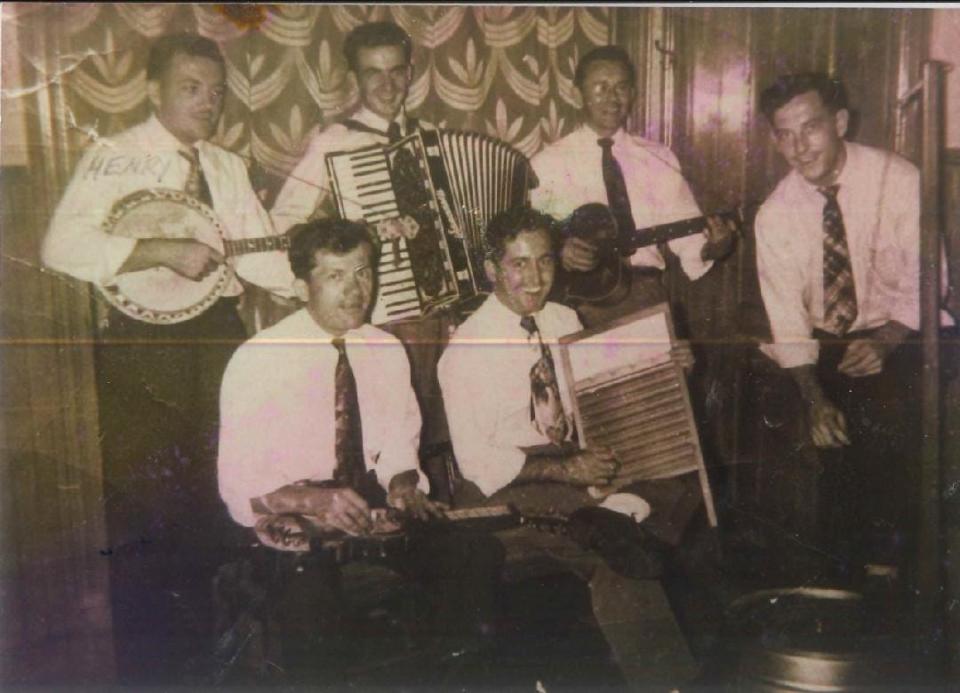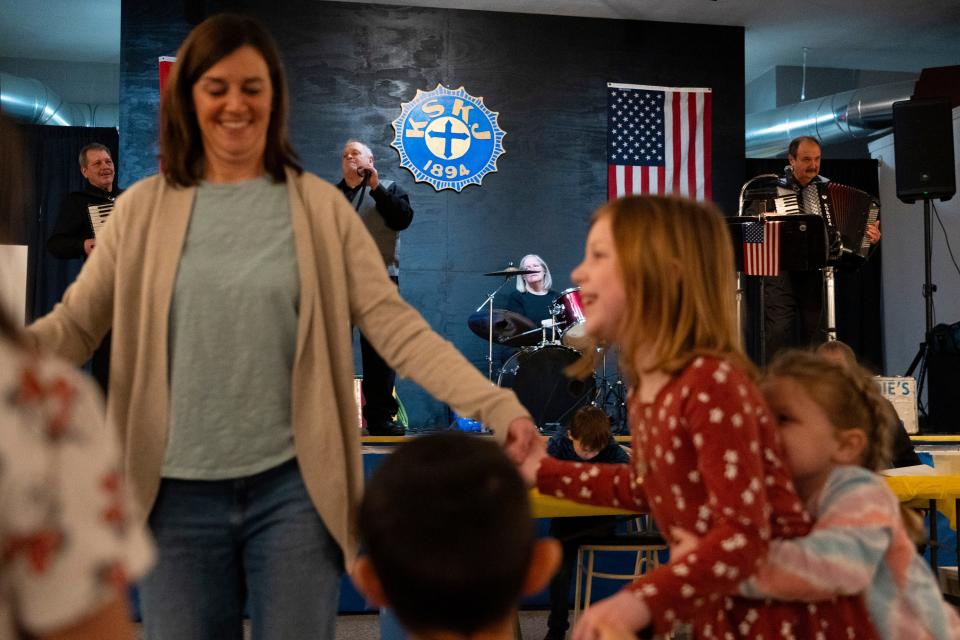Haughville Slickers once thrilled local Slovenian community. Now, they're hall of famers.
Pete Barbarich played his accordion until the day he died.
"When my dad was 93, we played my son's wedding," Barbarich's son, Paul, who dabbles in accordion, told IndyStar. "Poor guy was so nervous, but he knocked it out of the park. He couldn't even feel his fingers. He had a neuropathy. It was all muscle memory."
Ed Jakad, Barbarich's nephew, recalled playing a gig alongside his uncle at the latter's nursing home. Shortly after, he played at Barbarich's funeral.
A factory worker by day, Barbarich taught himself how to play and joined his family band, the Haughville Slickers.

From the end of World War II until the '80s, the Slickers performed polka music at weddings, funerals, dances and parties in the central Indianapolis neighborhood that lent them their name.
They did not tour. They didn't play bars. They seldom recorded music. They weren't always paid for their gigs.
The Slickers were simply guys from the neighborhood, which consisted almost exclusively of Slovenian immigrants who moved to the U.S. before World War I. One member worked at a hardware store. Another was a grocer, and a third taught music at Shortridge High School.
But ask anyone who remembers, and they'll tell you the Slickers could play. And now, they will forever be hall of famers.
Slovenian National Home

The Slovenian National Home of Indianapolis is both a literal building and a members-only club that began in 1918. It sits on 10th Street just down the road from the once-beautiful Slovenian Roman Catholic Church, which has decayed since closing in 2014, and the church's former schoolhouse on Holmes Avenue.
Once a bustling space for the Slickers and hundreds of their neighbors, it remains a hub for the grandchildren and great-grandchildren of those first Slovenian immigrants, despite the changing world around it.
More: 317 Project: Century-old Slovenian social club struggles to survive
On a soaked Saturday in January, it hosted the club's annual sausage fest fundraiser. Long tables with blue, yellow and white plastic tablecloths line its main hall. The basement houses a bar, more tables and an army of slow cookers filled with sausages and sauerkraut.
The Hall of Fame

Jakad, 72, and John Mauser, 75, were seated at a circular table in the basement just below a photo of the Slickers. They are the band's last living members: Mauser drummed for the group as a teenager in the '60s, and a 15-year-old Jakad took his place once he left for the U.S. Air Force.
In November, Jakad traveled to Cleveland with a group of 30 friends and relatives to accept entry into the National Cleveland-Style Polka Hall of Fame on behalf of the band. Cleveland-style polka features two or more accordions as its lead instruments.
The Slickers were mostly retired by the time Jakad joined in 1967, but they performed a few shows a year for the next few decades.
Mauser played percussion in the Cathedral High School marching band when he joined the band in 1964, while the Slickers were active.
"We played a lot of weddings, picnics and socials because this was the nucleus of the Slovenian population," Mauser said. "They were a great bunch of guys."
He continued: "It was a special time because you're playing with these older guys, and they were like mentors to me. They were a good example of how to enjoy life, how to enjoy the music and how to be with a lot of people."
As later members, Jakad and Mauser said they did not feel much personal ownership over the hall of fame. They are mostly just grateful the older members received the recognition.

At various times, the band's full roster included:
Louie Brodnik: Lap-top steel Hawaiian guitar and bass.
Hank Brodnik: Banjo, washtub bass and vocals
Joe Banich: Accordion (left the band early on)
Louis "Crunch" Trusnik: Guitar (left the band early on)
Pete Barbarich: Accordion
Ted Zeunik: Accordion (Zeunik and Barbarich replaced Banich and Trusnik)
John Medjeski: Saxophone, washtub bass
John Cimmerman: Drums
Why polka?

Eddie Korosa Jr., a popular accordionist from Chicago who once appeared in iconic '90s film "Home Alone" as a member of John Candy's band, served as the sausage fest's entertainment.
He has a simple and practiced answer when asked about the appeal of polka music.
"It's fun music, and it's for all ages," Korosa said. "That's what makes it nice."
Korosa, who is half-Slovenian and half-Polish, explained that many European countries also have deep traditions tied to the music. Though he prefers Cleveland style and entered its Hall of Fame the year before the Slickers, Polish style polka — with its heavy brass — also deserves to be celebrated, he said.
Korosa continues to work community-related events like this one, but he explained that polka-focused clubs and bars have largely shut down across the Midwest.
However, hipster millennials have picked up some of the slack.
"A lot of younger people didn't really care for polkas, but now in the last 10 years, all the craft breweries have opened up," he said. "And all these breweries are hosting Oktoberfest events, and that's kind of bringing our music back."
The future
In Indianapolis, the Slickers are gone for the most part. But much of the traditions they carried on have survived. Barely.
The Slovenian National Home has struggled to keep its doors open, Paul Barbarich explained. It's only open to club members on Friday evenings. The staff is all volunteers. But it hopes that by embracing the neighborhood's changing diversity, it can maintain the polka and Slovenian traditions it has always represented.
"The church across the way, the people still living here, the members of the Hispanic community who rent out our space for quinceañeras and other things," Barbarich said. "We have good neighbors."
"Haughville is on its way back compared to where it was five years ago," he continued. "I think it's possible the National Home can hang on."
Looking for things to do? Our newsletter has the best concerts, art, shows and more — and the stories behind them
Rory Appleton is the pop culture reporter at IndyStar. Contact him at 317-552-9044 and rappleton@indystar.com, or follow him on Twitter at @RoryEHAppleton.
This article originally appeared on Indianapolis Star: Indianapolis polka band named to Hall of Fame

